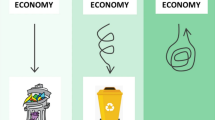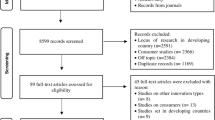Abstract
This paper aims to identify the environmental, socioeconomic, and social hot spots and to find ways to enhance the sustainability of selected food, fuel, and fiber products from sugarcane, i.e., sugarcane, sugar, electricity from bagasse, and molasses-based ethanol. Life cycle assessment (LCA) and social life cycle assessment (S-LCA) were used to examine the environmental, socioeconomic, and social performances of the various sugarcane-based products. All data from the field were collected during the production year 2014/2015. The environmental data were analyzed using the ReCiPe life cycle impact assessment method. Social data were analyzed using performance reference points method, using social indicators from relevant standards/guidelines. Interesting results from the study are that some problems such as cane trash burning and overuse of chemical fertilizers and agrochemicals are the main causes not only of negative environmental performance, but also of negative socioeconomic and social performances. Moreover, recommendations to help increase the sustainability of the Thai sugar industry for each stakeholder group have been provided. These include, for example, using demonstration farms in the same areas, zoning of agricultural crops, implementing large area-based agriculture policy, and making local regulation to prohibit cane trash burning.
Graphic abstract








Similar content being viewed by others
References
Barbosa CMG et al (2012) Burnt sugarcane harvesting—cardiovascular effects on a group of healthy workers, Brazil. PLoS ONE 7:e46142. https://doi.org/10.1371/journal.pone.0046142
Bonsucro (2014) Bonsucro production standard version 4.01. Bonsucro, London
Bordonal R, Carvalho J, Lal R, Figueiredo E, Oliveira B, La Scala Jr N (2018) Sustainability of sugarcane production in Brazil. A review. Agron Sustain Dev 3:8. https://doi.org/10.1007/s13593-018-0490-x
Cardoso TF et al (2018) Economic, environmental, and social impacts of different sugarcane production systems Biofuels. Bioprod Biorefining 12:68–82. https://doi.org/10.1002/bbb.1829
Cardozo NP, de Oliveira Bordonal R, La Scala N (2018) Sustainable intensification of sugarcane production under irrigation systems, considering climate interactions and agricultural efficiency. J Clean Prod 204:861–871. https://doi.org/10.1016/j.jclepro.2018.09.004
Cavalett O et al (2012) Environmental and economic assessment of sugarcane first generation biorefineries in Brazil. Clean Technol Environ Policy 14:399–410
Chhipi-Shrestha GK, Hewage K, Sadiq R (2015) ‘Socializing’ sustainability: a critical review on current development status of social life cycle impact assessment method. Clean Technol Environ Policy 17:579–596. https://doi.org/10.1007/s10098-014-0841-5
Contreras-Lisperguer R, Batuecas E, Mayo C, Díaz R, Pérez FJ, Springer C (2018) Sustainability assessment of electricity cogeneration from sugarcane bagasse in Jamaica. J Clean Prod 200:390–401. https://doi.org/10.1016/j.jclepro.2018.07.322
Department of Agricultural Extension (2016) Manual for large area based agricultural practice. Department of Agricultural Extension, Bangkok
Du C, Kulay L, Cavalett O, Dias L, Freire F (2018) Life cycle assessment addressing health effects of particulate matter of mechanical versus manual sugarcane harvesting in Brazil. Int J Life Cycle Assess 23:787–799. https://doi.org/10.1007/s11367-017-1334-7
Ecoinvent (2012) Ecoinvent data v.3.0. Swiss Centre for Life Cycle Inventories
Gheewala SH et al (2016) Sustainability assessment of sugarcane complex for enhancing competitiveness of Thai sugarcane industry. The Joint Graduate School of Energy and Environment (JGSEE), King Mongkut’s University of Technology Thonburi, Bangkok
Gheewala SH, Silalertruksa T, Pongpat P, Bonnet S (2019) Biofuels production from sugarcane in Thailand. In: Khan MTaK IA (ed) Sugarcane biofuels: status, potential, and prospects of the sweet crop to fuel the world. Springer, Berlin
Global Bioenergy Partnership (2011) The global bioenergy partnership sustainability indicators for bioenergy, 1st edn. Global Bioenergy Partnership, FAO, Rome
Gnansounou E, Alves CM, Pachón ER, Vaskan P (2017) Comparative assessment of selected sugarcane biorefinery-centered systems in Brazil: a multi-criteria method based on sustainability indicators. Bioresource Technol 243:600–610. https://doi.org/10.1016/j.biortech.2017.07.004
Goedkoop M, Heijungs R, Huijbregts M, Schryver AD, Struijs J, Zelm RV (2009) ReCiPe 2008: a life cycle impact assessment method which comprises harmonised category indicators at the midpoint and the endpoint level, 1st edn. Report I: characterisation. Ministry of Housing, Spatial Planning and the Environment (VROM), The Netherlands
Goldemberg J, Coelho ST, Guardabassi P (2008) The sustainability of ethanol production from sugarcane. Energy Policy 36:2086–2097
International Organization for Standardization (2006) Environmental management—life cycle assessment—principles and framework. ISO 14040:2006, 2nd edn. ISO, Geneva
Kongboon R, Sampattagul S (2012) The water footprint of sugarcane and cassava in northern Thailand. Procedia Soc Behav Sci 40:451–460
Macombe C (ed) (2013) Social LCAs: socio-economic effects in value chains. Cirad, Montpellier
Martínez-Guido SI, Betzabe González-Campos J, Ponce-Ortega JM, Nápoles-Rivera F, El-Halwagi MM (2016) Optimal reconfiguration of a sugar cane industry to yield an integrated biorefinery. Clean Technol Environ Policy 18:553–562. https://doi.org/10.1007/s10098-015-1039-1
Mashoko L, Mbohwa C, Thomas VM (2010) LCA of the South African sugar industry. J Environ Plan Manag 53:793–807
MTEC (2014) Thai national life cycle inventory database. National Metal and Materials Technology Center, National Science and Technology Development Agency. http://www.thailcidatabase.net/index.php/thai-national-life-cycle-inventory-database. Accessed 30 Aug 2014
Natural Resources Management and Environment Department of FAO (2013) Sustainability assessment of food and agriculture systems indicators. Food and Agriculture Organization of the United Nations, Rome
Nguyen TLT, Gheewala SH, Garivait S (2008) Full chain energy analysis of fuel ethanol from cane molasses in Thailand. Appl Energy 85:722–734
Office of the Cane and Sugar Board (Thailand) (2016) Sugarcane planting area report: producion year 2015/2016. Office of the Cane and Sugar Board (Thailand). http://www.ocsb.go.th/upload/OCSBActivity/fileupload/8071-2689.pdf. Accessed 10 May 2017
Parent J, Cucuzzella C, Revéret J-P (2010) Impact assessment in SLCA: sorting the sLCIA methods according to their outcomes The. Int J Life Cycle Assess 15:164–171. https://doi.org/10.1007/s11367-009-0146-9
Prasara-A J, Gheewala SH (2018) Applying social life cycle assessment in the Thai sugar industry: challenges from the field. J Clean Prod 172:335–346. https://doi.org/10.1016/j.jclepro.2017.10.120
PRé Consultants B.V. (2019) LCA software for fact-based sustainability. Pre’ Consultants B.V. https://simapro.com/. Accessed 1 Feb 2019
Sawaengsak W, Gheewala SH (2017) Analysis of social and socio-economic impacts of sugarcane production: a case study in Nakhon Ratchasima province of Thailand. J Clean Prod 142(Part 3):1169–1175. https://doi.org/10.1016/j.jclepro.2016.08.148
Silalertruksa T, Gheewala SH (2011) Long-term bioethanol system and its implications on GHG emissions: a case study of Thailand. Environ Sci Technol 45:4920–4928
Silalertruksa T, Pongpat P, Gheewala SH (2017) Life cycle assessment for enhancing environmental sustainability of sugarcane biorefinery in Thailand. J Clean Prod 140:906–913. https://doi.org/10.1016/j.jclepro.2016.06.010
Singh P, Singh SN, Tiwari AK, Pathak SK, Singh AK, Srivastava S, Mohan N (2019) Integration of sugarcane production technologies for enhanced cane and sugar productivity targeting to increase farmers’ income: strategies and prospects. 3 Biotech 9:48. https://doi.org/10.1007/s13205-019-1568-0
Souza A, Watanabe MDB, Cavalett O, Ugaya CML, Bonomi A (2018) Social life cycle assessment of first and second-generation ethanol production technologies in Brazil. Int J Life Cycle Assess 23:617–628. https://doi.org/10.1007/s11367-016-1112-y
Thailand Sustainable Development Foundation (2016) Sustainable development goals—SDGs. Thailand Sustainable Development Foundation. http://www.tsdf.or.th/en/seminar-event/10268/sustainable-development-goals-sdgs. Accessed 3 Dec 2017
Turetta APD, Kuyper T, Malheiros TF, Coutinho HLdC (2017) A framework proposal for sustainability assessment of sugarcane in Brazil. Land Use Policy 68:597–603. https://doi.org/10.1016/j.landusepol.2017.08.011
UNEP, SETAC (2009) Guidelines for social life cycle assessment of products. UNEP/SETAC, Nairobi
United Nations (2015) Statement by Thailand at the Intergovernmental negotiations on the post-2015 development agenda, 23–27 March 2015. Division for Sustainable Development, United Nations Department of Economic and Social Affairs. https://sustainabledevelopment.un.org/content/documents/13641thailand.pdf. Accessed 31 July 2016
Uriarte M, Yackulic CB, Cooper T, Flynn D, Cortes M, Crk T, Cullman G, McGinty M, Sircely J (2009) Expansion of sugarcane production in São Paulo, Brazil: implications for fire occurrence and respiratory health. Agric Ecosyst Environ 132(1):48–56. https://doi.org/10.1016/j.agee.2009.02.018
Valdivia S, Ugaya CML, Hildenbrand J, Traverso M, Mazijn B, Sonnemann G (2013) A UNEP/SETAC approach towards a life cycle sustainability assessment—our contribution to Rio+20. Int J Life Cycle Assess 18:1673–1685. https://doi.org/10.1007/s11367-012-0529-1
Workman D (2017) Sugar exports by country. World’s Top Exports. http://www.worldstopexports.com/sugar-exports-country/. Accessed 2 Dec 2017
World Commission on Environment and Development (1987) Our common future. Oxford University Press, Oxford
Acknowledgements
The Thailand National Science and Technology Development Agency is gratefully acknowledged for research funding under the project “Research Network for LCA and Policy on Food, Fuel and Climate Change” (Grant No. P-12-01003). All the anonymous sugarcane factories and ethanol refineries, sugarcane farmers, and all other stakeholders whom provide useful information for this study are gratefully acknowledged.
Author information
Authors and Affiliations
Corresponding author
Additional information
Publisher's Note
Springer Nature remains neutral with regard to jurisdictional claims in published maps and institutional affiliations.
Rights and permissions
About this article
Cite this article
Prasara-A, J., Gheewala, S.H., Silalertruksa, T. et al. Environmental and social life cycle assessment to enhance sustainability of sugarcane-based products in Thailand. Clean Techn Environ Policy 21, 1447–1458 (2019). https://doi.org/10.1007/s10098-019-01715-y
Received:
Accepted:
Published:
Issue Date:
DOI: https://doi.org/10.1007/s10098-019-01715-y




